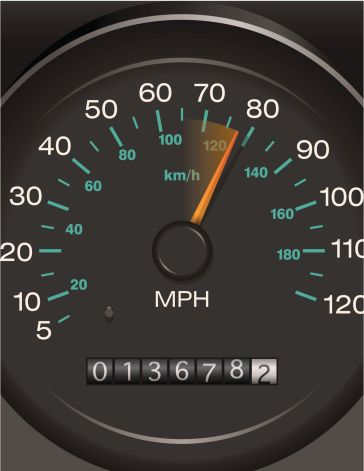
The IRS has announced that the optional standard mileage rate for business use of an automobile (including vans, pickup trucks and panel trucks) effective January 1, 2020 will be a bit different from 2019 at 57.5 cents per mile driven for business use, down one half of a cent per mile. The standard rate for using an automobile for medical reasons or for calculating deductible moving expenses will be 17 cents per mile, down three cents from the rate for 2019. The rate applicable when using an automobile to provide services to a charitable organization remains unchanged at 14 cents per mile.
Download Printable Article (PDF) >>>
The optional standard rate may be used by taxpayers to decrease the record keeping burden associated with tracking actual automobile expenses. You would compute the permitted deduction by multiplying the business miles driven during the year by the standard mileage rate.
It is important to note that under the Tax Cuts and Jobs Act, taxpayers cannot claim a miscellaneous itemized deduction for unreimbursed employee travel expenses. Taxpayers also cannot claim a deduction for moving expenses, except members of the Armed Forces on active duty moving under orders to a permanent change of station.
The deduction is allowed only for that part of the expenses that is attributable to business use (sorry, commuting is considered personal use). Yep, reimbursing an employee using the vehicle for business so qualifies (even if it’s a certain pudgy accountant’s automatic Porsche Boxter). Of course, one can always substantiate such auto costs by keeping exact records of expenses such as gas, repairs, tires, licenses, registration, insurance, oil, car lease payments, auto depreciation, oil and other such maintenance costs allocable to the business usage.
Regardless, the standard rate does not include parking and tolls so you may deduct these costs separately on your tax return. If you feel it will be beneficial to use the “actual auto expense method”, you should keep track of business miles driven for the year and, at the end of the year, divide your business miles by the total miles driven (remember, commuting is considered personal miles). The resulting number is your business use percentage. You then multiply this business use percentage with your actual expenses to compute the auto expense deduction. Just note that the actual auto expense method requires you maintain accurate records of all your auto expenses as well as a record of your mileage.
This business standard mileage rate can be used for leased or owned autos but where the particular owned car uses the standard mileage rate, depreciation is assumed at varying cents per mile rates for those years in which the business standard mileage rate was, in fact, used. Abo and Company professionals, as tax preparers, need to know this information since the depreciation so described reduces the basis of the car in determining gain or loss when it is disposed of later on.
You should note that you cannot use the standard IRS mileage method if you used the actual expense method on that car (i.e. took depreciation) on a previous year’s income tax return or you use more than four cars for business at the same time.
An employer’s reimbursements to employees for properly documented business expenses are not subject to payroll taxes, nor must such reimbursements be reported on the employee’s tax return. This tax-free treatment applies in the case of a mileage allowance, but only if the reimbursement rate is no more than the IRS-approved standard mileage rate. Note that reimbursements made after January 1, 2020 for mileage incurred after that date, 57.5¢ per mile is the maximum rate at which employers may reimburse employees for the use of their vehicles in your business activities without incurring a payroll tax or withholding liability related to the reimbursement. If employers choose to reimburse employees at a higher rate, the excess over 57.5¢ per mile is treated as additional income to the employee, subject to income and payroll taxes. Yep again – often a
bookkeeping nightmare.
One question we at Abo and Company get asked a lot, as we’re sure is the case with many of our tax-preparer colleagues, is about interest incurred on a car loan. You should note that interest paid by an employee on their auto loan is considered nondeductible personal interest. A self-employed taxpayer can, however, deduct the business portion of such interest paid as a business expense but the remaining nonbusiness portion is considered nondeductible personal interest.
You might be able to claim 100% bonus depreciation for heavy SUVs, pickups, or vans. This 100% bonus depreciation provision can have a hugely beneficial impact on first-year depreciation deductions for new and used heavy vehicles used over 50% for business. That’s because heavy SUVs, pickups, and vans are treated for tax purposes as transportation equipment that qualifies for 100% bonus depreciation. However, 100% bonus depreciation is only available when the SUV, pickup, or van has a manufacturer’s Gross Vehicle Weight Rating (GVWR) above 6,000 pounds. The GVWR of a vehicle can be verified by looking at the manufacturer’s label, which is usually found on the inside edge of the driver’s side door where the door hinges meet the frame.
Buying an eligible vehicle and placing it in service before the end of this tax year could deliver a juicy write-off on your return.
You can claim first-year depreciation deductions for cars, light trucks, and light vans. For both new and used passenger vehicles (meaning cars and light trucks and vans) acquired and placed in service in 2019 and 2020, the luxury auto depreciation limits are as follows:
• $18,100 for Year 1 if bonus depreciation is claimed;
• $16,100 for Year 2;
• $9,700 for Year 3;
• $5,760 for Year 4 and thereafter until the vehicle is fully depreciated.
Note that the $18,100 first-year luxury auto depreciation limit only applies to vehicles that cost $58,500
or more. Vehicles that cost less are depreciated over six tax years using percentages based on their cost.
Converting an asset that was used for business to personal use generally does not trigger gain or loss. When the taxpayer sells the asset, there will be a taxable gain to the extent that the sale price exceeds the adjusted
basis of the auto. However, under the listed property rules (i.e. applicable to passenger vehicles), if business
use drops to 50% or less at any time during the recovery period, earlier accelerated depreciation, special
depreciation and/or Section 179 deductions must be recaptured and reported as ordinary income. Converting
a business auto to personal use reduces the business-use percentage to zero, so recapture income will be
recognized at the conversion date if the auto was listed property used more than 50% for business.
Which method to use? Classic accountant’s “no answer-answer” – it depends. The optional standard mileage
method certainly saves time, has less record-keeping and is much easier to use (especially if records are difficult
to locate). For certain inexpensive cars to operate, the standard mileage approach might even yield a larger
deduction than the actual cost method. If you are well organized, retaining good documentation, use of the
actual expense method can result in a higher deduction. We find this often when the vehicle is more expensive
and where you can deduct an accelerated depreciation for the first few years you are using the vehicle for
business. Also, when you spend a lot on repairs, insurance and other costs to operate the car, the standard
mileage rate might result in a lower tax deduction. Yep, it just depends. Check with us at Abo and Company to
go over your particular situation.
FOR MORE INFORMATION:
Martin H. Abo, CPA/ABV/CVA/CFF is a principle of Abo and Company, LLC and its affiliate, Abo Cipolla Financial
Forensics, LLC, Certified Public Accountants – Litigation and Forensic Accountants. With offices in Mount
Laurel, NJ and Morrisville, PA, tips like the above can also be accessed by going to the firm’s website at www.
aboandcompany.com



